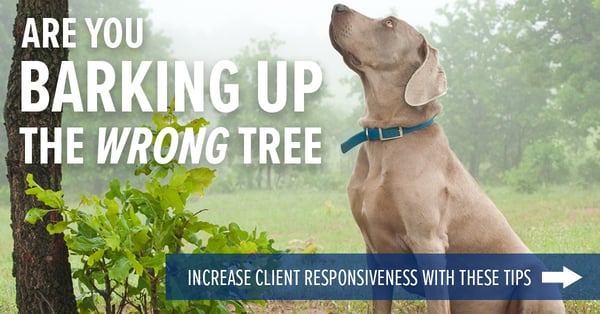Tap into your full professional potential with a few mistake-focused hacks
Did anyone ever tell you to “fail better?” Admittedly, this advice sounds a bit backward, but it’s actually pretty accurate. Think of it this way: you may be only three failures away from your next big success. The theory behind “successful failing” is that if we stop being afraid of getting things “wrong,” we will take more chances, be more bold and accomplish more. It’s not that we rid ourselves of moments of failure or mistakes altogether, but that we use them as learning tools and stepping stones to keep moving forward.
According to philosophytalk.org, philosopher Daniel Dennett advised, “…become a connoisseur of your own mistakes, turning them over in your mind as though they were works of art, which in a way they are.” Works of art? That might sound like a bit of a stretch—but the general gist is on point. As a society, we tend to see mistakes as negative things, but it’s time to flip that perspective upside down. Mistakes are great—they’re really just learning opportunities in disguise. It’s only if we neglect to learn from them and continually repeat them that they become something negative.
Research provides us with a glimpse of the benefits of failing:
- The Nature Communications reported on an MRI study that found that brains truly can feel good about mistakes when given the chance to learn from them.
- A 2014 study from Science Express discovered that when people learn a new task, having memories of prior mistakes helped them to learn the task more quickly. Essentially, the mistakes have trained the brain to be more efficient.
- Not only does failure teach your brain to be more efficient, it also actually boosts memory, as noted by the Journal of Experimental Psychology: Learning, Memory, and Cognition.
People often say, “If you aren’t making mistakes, you probably aren’t trying hard enough.” Failure is a normal, unavoidable part of the journey of life. Because we know we will experience it from time to time, it’s important to change our mindset surrounding it, and to think of our mistakes in a new light.
For a new perspective on mistakes, consider these factors:
- Mistakes teach us much better than “perfection” does. Mistakes are truly our very best teachers. They give us new perspectives to take with us as we move forward—every time.
- Experiencing failure is the key to having a “growth mindset.” You cannot grow if you’re already “perfect.” Failure is scientifically proven to make us better and smarter at what we do.
- Errors make us human. They remind the people around us that we aren’t perfect—and this is incredibly relatable. When someone makes a mistake, people typically respond with compassion. In fact, mistakes help us to build deeper human connections.
Here are a few ways that you can harness the positive aspects of failure to experience increased success:
- Accept and admit your mistakes. This is really the key to learning from them. If we are in denial about making mistakes in the first place or if we deflect blame, it doesn’t give us the opportunity to evaluate things and make important changes.
- Review & reflect upon your failures. According to success.com, it’s important to take some time to look back. John Maxwell notes, “At the end of every year, I set aside an entire week to review the previous 12 months. Every month I look at successes and failures of the previous 30 days. And at the end of every day, I ask myself key questions about how I did in the previous 24 hours. I list the things that I accomplished, where my time was spent and any mistakes I made.” Self-reflection is invaluable and critical to growing professionally.
- Evaluate things thoroughly. John Maxwell also shares this great advice, [ask yourself]: “What plans worked? What decisions yielded good results? What decisions ended up being wrong? If I were to approach the situation again knowing what I know now, what would I do differently? Why?” He agrees that, “The biggest mistakes often yield the biggest lessons.”
- Revise your approach accordingly. After you take the time to deeply evaluate your successes and failures, make a plan that will help you learn from them and move forward without repeating them. Spending your time feeling regretful is unproductive. The past can’t be changed, but hindsight truly is 20/20. View every mistake as a learning experience that will allow you to better shape future successes.
Lifehack.org notes that “High achievers are the ones who make the most mistakes.” Embrace this idea, and let it free you from any burdens you might place on yourself to perform perfectly at all times. Mistakes are powerful vehicles that allow you to tap into fast personal and professional growth. Feel free to fail—and do it with flair. Before you know it, you’ll be experiencing greater success than ever before.
Your clients better respond to you when you're approachable, but they'll respond even better if you use these simple tips>>>

Lindsey Elias, Marketing
As our Director of Communications, Lindsey is passionate about producing quality content. When not at the office or planning her next Disney getaway, she loves hanging with her husband, family, and fur baby and indulging in the two c's: carbs & coffee.
DISCLAIMER
The information contained in this blog post is intended for educational purposes only and is not intended to replace expert advice in connection with the topics presented. Glatfelter specifically disclaims any liability for any act or omission by any person or entity in connection with the preparation, use or implementation of plans, principles, concepts or information contained in this publication.
Glatfelter does not make any representation or warranty, expressed or implied, with respect to the results obtained by the use, adherence or implementation of the material contained in this publication. The implementation of the plans, principles, concepts or materials contained in this publication is not a guarantee that you will achieve a certain desired result. It is strongly recommended that you consult with a professional advisor, architect or other expert prior to the implementation of plans, principles, concepts or materials contained in this publication.
This blog post may contain the content of third parties and links to third party websites. Third party content and websites are owned and operated by an independent party over which Glatfelter has no control. Glatfelter makes no representation, warranty, or guarantee as to the accuracy, completeness, timeliness or reliability of any third party content. References to third party services, processes, products, or other information does not constitute or imply any endorsement, sponsorship or recommendation by Glatfelter, unless expressly stated otherwise.
Related posts
Being able to remain positive in spite of everything you face could have some truly amazing impacts.
When it comes to cybersecurity, the basics can go a long way.
With so much information online—it's comforting to hear from a real person with first-hand experience with a product or service before you make a purchase.







Submit a Comment